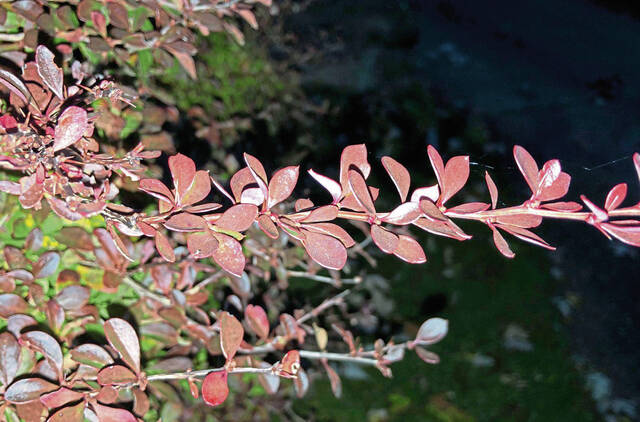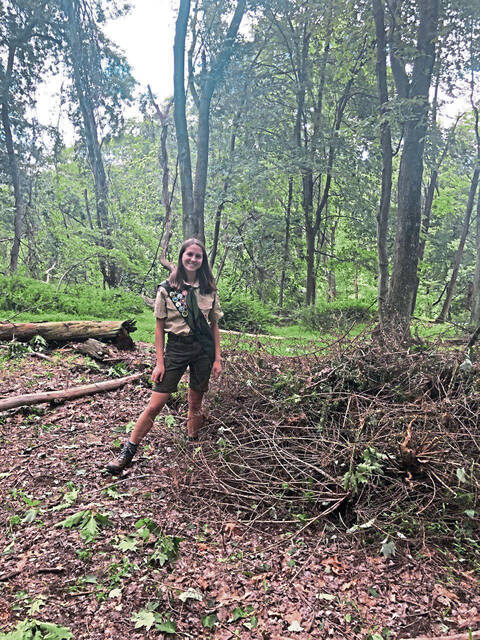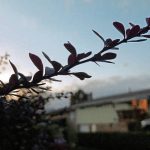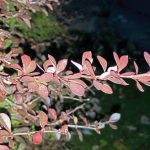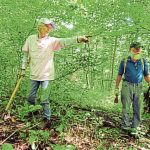State agriculture officials have had it with Japanese barberry.
After considering it previously in 2018, Pennsylvania officials have added the invasive shrub to their list of noxious weeds, and merchants will not be permitted to sell it by the fall of 2023.
The shrub is popular with landscapers. Unfortunately, it also is popular with black-legged ticks, the variety which spreads Lyme disease.
“Many seemingly attractive plants can actually harm our environment, our food supply and our health,” Agriculture Secretary Russell Redding said. “Pennsylvania does not take banning the sale of a plant lightly.”
Originally brought to the U.S. from Japan and eastern Asia in the 1800s as an ornamental, it has been used widely as a landscape shrub because of its fall coloring and particularly because deer do not typically eat it.
In the wild, however, it can spread easily into woodlands, pastures and fields, crowding and choking out native vegetation.
For more than two decades, Pia Van de Venne of Murrysville has been working to rid the municipality’s parks of invasive plants including barberry, garlic mustard and Japanese stilt-grass.
She does similar work in her own yard, where she previously planted invasive species before knowing what native plants would better benefit the area. But since planting ajuga and myrtle, she has spent the past 37 years trying to rid her yard of them.
“My advice is always plant native vegetation or, if you really want to do something else, then do something that the deer like to eat,” Van de Venne said. “Like tulips. If you like tulips, plant tulips. It will never become an invasive plant.”
Redding agreed.
“Prevention is the best alternative,” Redding said. “Choosing native plants that harbor pollinators and allow a healthy, natural ecosystem. Carefully considering the potential impact of what we plant can prevent lasting damage that is difficult, expensive or impossible to reverse.”
The ban will follow a two-year rollout plan:
• This month, nursery and landscaping businesses will receive notice advising them to immediately begin adjusting propagation, ordering and planting to decrease their inventory of Japanese barberry.
• In the fall of 2022, warning letters will go out to any business still selling it, providing the fall 2023 after which any remaining inventory will be subject to a destruction order.
• In the fall of 2023, stop-sale and destruction orders will be issued.
Businesses with questions about the ban can email ra-plant@pa.gov.
Last month, the department also added garlic mustard (Allaria petiolata) and Japanese stiltgrass (Microstegium vimineum) to the list. While they are not sold commercially, homeowners are advised to remove them from their property if found.
For details, see the Governor’s Invasive Species Council website at Agriculture.pa.gov.



